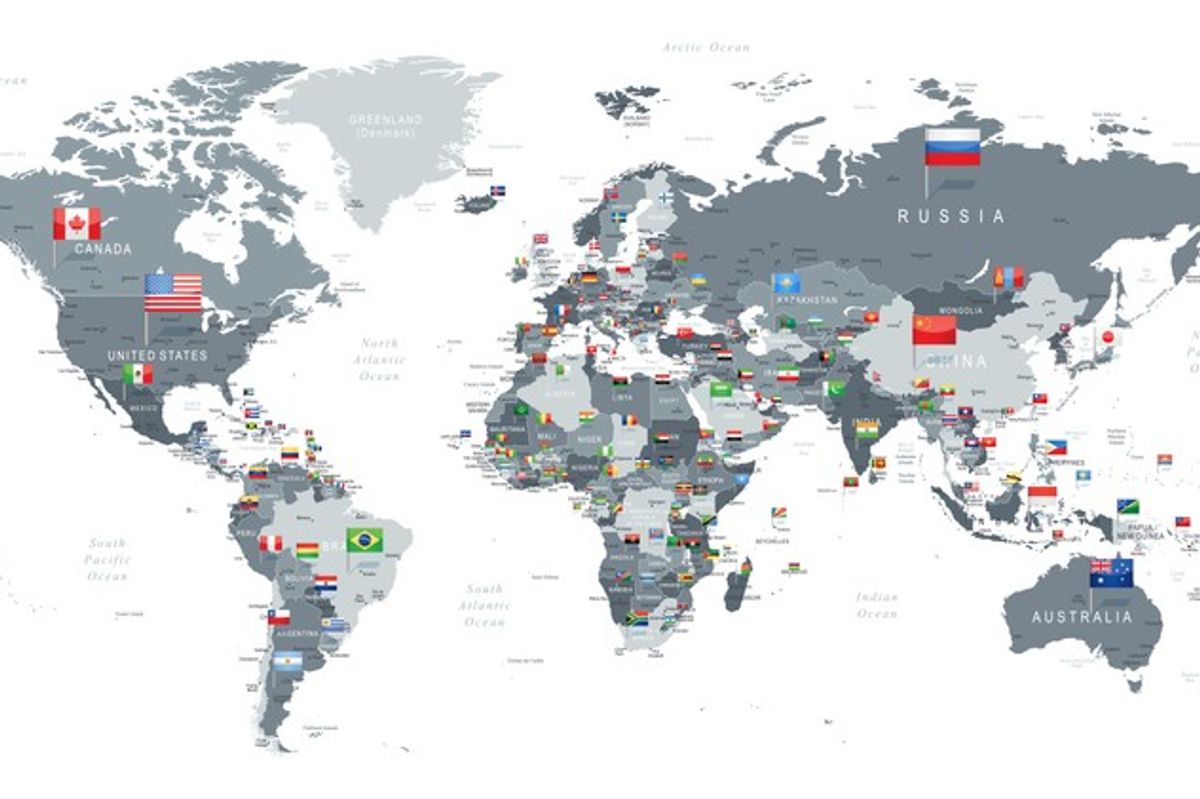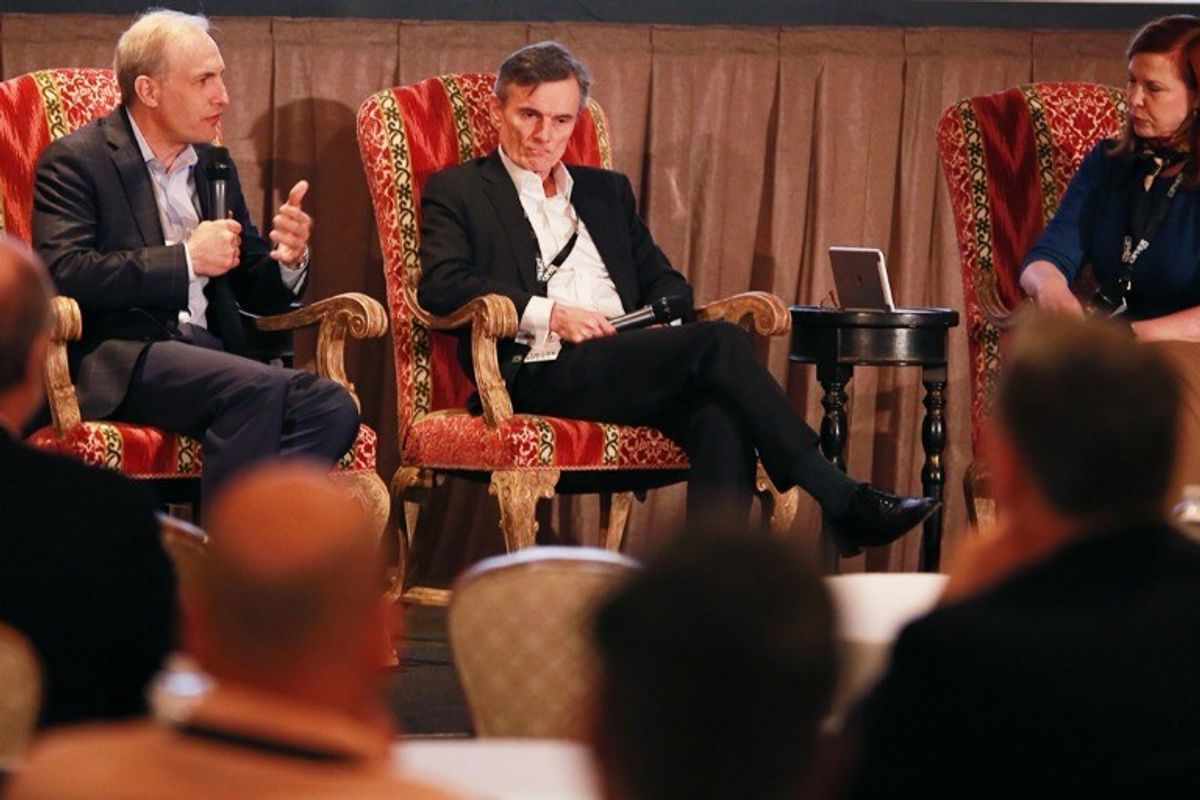After British snap elections held this Thursday, attention will now turn back to negotiations between the EU and the UK to determine the terms under which Britain will leave the European Union. Headline issues include the so-called "exit fee" that London is being asked to pay Brussels, as well as immigration issues and the status of EU citizens already working in the UK. However, as the recent dispute between Spain and the UK over the status of the British territory of Gibraltar demonstrates, there are also a slew of bilateral disputes between Britain and the remaining 27 EU countries which threaten to complicate exit negotiations. From Gibraltar to the Elgin Marbles, The Cipher Brief’s Fritz Lodge asks Senior Fellow at the Peterson Institute for International Economics and former Bulgarian Minister of Finance, Simeon Djankov, how these outstanding bilateral disputes will affect Britain's attempt to leave the EU with a favorable agreement.
TCB: Negotiations over the UK’s exit from the European Union are set to begin in earnest on June 19. Those talks will likely focus on the headline issues of Brexit, such as the issue of British payments to the EU budget. However, there are also a number of outstanding bilateral disputes between Britain and EU member countries, which many believe will rise up to complicate Brexit talks as they progress. What are some of the most important such disputes?
Simeon Djankov: Gibraltar has already shown up as an issue and it will continue to pop up in Brexit discussions. From a purely political perspective, this is the most obvious issue.
There are a number of sub-discussions that are arising on specific countries and the treatment of their citizens working in the EU after Brexit. You can say that this is an EU-wide question, but some countries have more of a stake in this issue due to the sheer number of their citizens who work in the UK, for instance Poland or Spain. They will push to make sure that this issue is settled, and in particular, that it precedes any discussion of Britain possibly getting certain exemptions or a long phasing period for its banking and financial sectors.
These are important because nobody really believes that the British financial sector – the City of London so to speak – will have the regulatory set up necessary to do business on their own outside the EU within the next two or three years of negotiation. Both Poland and Spain are using this opportunity to say, “we won’t discuss financial sector regulation before it is very clear how our citizens are going to be treated in post-Brexit Britain.”
This issue is quite well known but there are many other bilateral negotiations that are just now beginning to rise up. These are happening in two basic directions. One, we already mentioned, is related to the City of London but specifically focused on the European financial sector. Even back in 2015 or so, Luxembourg brought a case – supported at the time by Germany – to the European Court of Justice to claim that all Euro-clearing must take place within the Eurozone and that, therefore, the City of London must be excluded from Euro transactions. Currently, about 90 percent of global Euro transactions take place in London.
Luxembourg lost that case in April 2016, before Brexit. The Court of Justice said no way. However, now that Brexit has happened, Luxembourg has told the European Commission that it would like this topic to be very prominent in Brexit negotiations. The UK does not want this to be part of its negotiations with the EU as a whole, so now the British have started approaching the Luxembourg government to say, “look, let’s discuss this. Maybe some share of this business can go towards you from, for example, the common platform that the London Stock Exchange shares with the Luxembourg Stock Exchange.” There are a lot of technical problems with this idea, but I think this is one – sometimes overlooked – bilateral discussion that is going to pick up quite significantly in the coming months because only one country in the EU, Luxembourg, really cares about that issue.
Another topic that has already been publicly discussed is the location of the European Medicines Agency, which regulates pharmaceutical products. It is currently located in London, and the UK has made the point that it should stay in Britain for a very long transitional period – 10 or even 20 years – since the UK has the most developed pharmaceutical industry in terms of R&D. But France, in particular, would like to see that agency move away from the UK immediately, arguing that it is clearly a European agency funded from the European budget. This is a multibillion Euro discussion because it matters a lot who decides on pharmaceutical patents, the release of new drugs, et cetera. My guess is that there will be quite a lot of heat around this topic because there are very large industries involved, and this essentially bilateral issue between Britain and France has already been brought up publicly during France’s presidential race.
These are some of the Brexit squabbles that we already know about, where European countries have already voiced their views about what should come first during Brexit negotiations.
Others will, of course, come up but my view is that they will come up in the late fall. The reason is that smaller countries are waiting to see how many of the bilateral issues can take precedence over the particular issue of how much the UK owes to the EU in this divorce – currently the EU is asking for 62 billion Euro. Everybody cares about the money, so some of the smaller countries are taking a more cautious approach before bringing up their own bilateral interests. However, if this issue gets resolved early, then bilateral issues will quickly be added to the agenda of Brexit negotiations. I expect that by October or November nearly every country will bring some kind of bilateral issue to the discussions.
Another issue that will probably arise comes from Romania. Last year, for the first time, Romania replaced Poland as the number one origin country of immigration into the rest of the European Union. But since Romania and Bulgaria entered the EU after the other Central and East European countries, their workers were only able to enter the labor market without restrictions only about two years ago. Because they entered late, some issues over the transferability of pensions and other social benefits are actually not resolved for them.
Romania will surely bring this topic up early on, and Romania is in a very strong position to argue these points because they don’t have much trade with the UK, and they don’t have much investment from the UK, so they don’t depend on the UK for much of anything. Thus, they have very little incentive to back down from their demands.
TCB: This issue, EU workers’ rights in the UK, is a problem for other countries as well, correct?
Djankov: Yes, other countries will push, but Romanians have a bit more of a pressing need here because there is this question of the transferability of social benefits, which Poles and Czechs and Slovaks and Italians already have. The Romanians don’t have it yet because they entered the EU too late. There was a three-year transition period for these benefits, so they will have them next year but they don’t have it yet.
Romania can also be more insistent than many other countries because they don’t depend on foreign direct investment or trade from the UK. They really don’t have much to lose.
TCB: What scope do these individual countries have to gum up the works of any future Brexit agreement? If Romania, for instance, really is intractable on this issue and the UK won’t give, how far could they take it?
Djankov: Very far.
We saw during the negotiation of the EU-Canada Comprehensive Economic and Trade Agreement (CETA) that three or four countries – some of the smallest countries like Romania, Bulgaria, and Cyprus – deadlocked talks to the point that CETA was rejected once in the EU parliament. It then took an additional month and a half of additional bilateral talks, during which the Canadian foreign minister was going to each of these countries one by one, for the agreement to go back to EU parliament. The Canadians had to give ground to these countries on many issues.
TCB: Wallonia as well in Belgium, right?
Djankov: That’s correct, although Wallonia objected to the agreement because they didn’t think free trade itself was such a good idea. So that was more of an ideological issue than the others. The others were transactional. For instance, Bulgaria and Cyprus wanted visa concessions, for Poland it was energy and concessions on coal.
But this whole CETA agreement was seriously sidetracked. The Canadians were saying “never again, we’re leaving the table,” but they soon realized they had to come back to the table.
This same thing is going to happen to the UK but it won’t be three or four countries that they have to deal with bilaterally, it will be 20 countries. That’s why I think that Brexit negotiations – at least on some topics – are going to last 7-10 years. This doesn’t necessarily mean an extension of Article 50 talks, but it will happen during the transitional periods that come after the next two years of negotiations.
TCB: Do you think that EU negotiators are really taking these bilateral disputes into account and thinking of them as weapons or leverage that they can incorporate into their strategy? Both the economic and more political issues like the problem of creating a hard border between Ireland and Northern Ireland?
Djankov: Yes, they’re definitely incorporating them. They are taking them very seriously because European negotiators are in no rush. They can say “look, these are legitimate concerns and they need to be addressed.” In the EU, it’s not a majority or a supermajority vote, every country has veto power. If one country refuses to sign up, then there is no agreement.
If it gets to the point on some specific topics like the financial sector, which I believe it will, where negotiations are so protracted that they don’t finish within the first two, three, four years, then it is possible to hold a 2/3 vote within the European Council. That’s fairly exceptional but it’s been used on occasion, during the Eurozone crisis for example. Nevertheless, this is fairly unusual. For everything else, it will have to be a yes vote from all 27 EU countries.
This puts EU negotiators in a great position because they can always point to this and say, “look, even if we want to compromise on x issue we cannot because Romania is in the way, so go argue with Romania.” But there isn’t even a real mechanism for this kind of bilateral negotiation within the multilateral Brexit negotiation so these will have to be a three-way process between the UK, EU negotiators, and the Romanian foreign minister. Then you have to repeat this process with Luxembourg, Bulgaria, and so on. This will take a very long time.
TCB: Is there anything that British negotiators can do to counter this? Do they even have the bandwidth to deal with these kind of multilevel bilateral-multilateral negotiations? And what impact will the results of last week’s election in the UK have on talks?
Djankov: The results weaken the drive towards hard Brexit, especially on the issue of borders with Europe. Northern Ireland's Unionist Party will fight tooth and nail against a border with Ireland. That, in turn, will weaken the overall stance on migration.
Even if Theresa May had won a greater majority in the elections last week, this would not have translated into greater negotiating power with the EU.
EU negotiators represent the interests of 27 members and they will represent those interests. In my view, EU negotiators will be unusually accommodating to each EU member country, and they will make sure that every county that has a gripe with the UK will have its chance to bring those disputes. The UK does not have the negotiating bandwidth to deal with this but Europe does, and they can wait as long as they need to.
UK negotiators are still not mentally prepared for what’s coming from Europe. This process is going to be a lot longer and a lot more uncomfortable for UK negotiators than they expect now.












